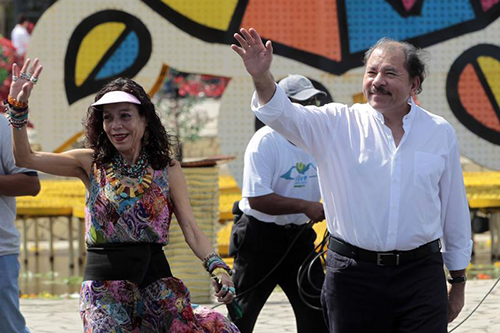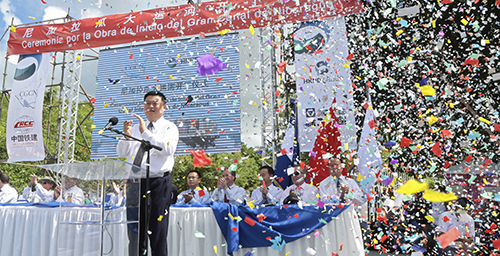
Nicaraguan government launches campaign of harassment against Channel 10
Bogotá, Colombia, August 24, 2018–The Nicaraguan government has launched a campaign of harassment against the independent TV station Channel 10, which has criticized President Daniel Ortega for ordering deadly attacks on anti-government protesters over the past four months, according to news reports.

Armed attackers rob, threaten Nicaraguan reporter in his home
Two armed men broke into the home of newspaper reporter Josué Garay in the Nicaraguan capital of Managua early on June 10, 2018, beat him and stole his phone and identification documents, the journalist told CPJ by phone. Garay told CPJ he believes the attack was an attempt to intimidate him and discourage him from…

Civilians attack, set fire to pro-government radio station in Nicaragua
Bogotá, May 30, 2018–Nicaraguan authorities should investigate an attack on a pro-government radio station in Managua, the capital, hold the perpetrators to account, and ensure that journalists covering ongoing unrest in the country can work safely, the Committee to Protect Journalists said today.

Journalist killed while covering protests in eastern Nicaragua
New York, April 24, 2018–Nicaraguan authorities should investigate journalist Ángel Eduardo Gahona’s death and ensure that reporters can do their work without fear of violence or censorship, the Committee to Protect Journalists said today. Gahona, the director of the local, independent television program El Meridiano, was fatally shot on April 21 while covering protests against…

In Nicaragua, TV channels blocked, journalists injured while covering pension protests
New York, April 20, 2018–At least nine journalists have been injured and at least five independent television channels have been blocked in Nicaragua, as escalating protests against pension reform since April 18 have left at least three people dead, according to news reports.

CPJ Safety Advisory: Covering protests in Nicaragua
Demonstrations began in Nicaragua on April 18, as thousands of civilians in several cities protested changes to the country’s social security system, according to reports. At least three people, including a protester and a police officer, were killed in clashes, The Associated Press reported.

Long silence from Nicaragua’s president as first lady keeps press at arm’s length
It’s been nearly 3,000 days since Nicaraguan President Daniel Ortega last held a news conference, according to the opposition newspaper La Prensa. But when journalists complain about the lack of access to Ortega they often direct their ire not at the president but at the first lady, Rosario Murillo.

Reporters covering Nicaragua waterway project obstructed by lack of information
When Nicaragua began preliminary work on an interoceanic waterway designed to handle ships too big for the Panama Canal, some of the foreign correspondents who had flown in to cover the December groundbreaking were left high and dry.

